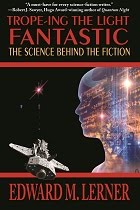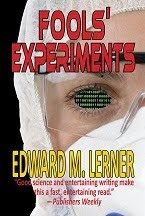| Beware VR? |
Samsung, maker of the Gear VR headset cautions:
... that people should stop using the Gear VR immediately if they experience seizures, loss of awareness, eye strain, nausea or "any symptoms similar to motion sickness." In addition, the device is not recommended for children younger than 13.See more about the risks at "Samsung Gear VR: Virtual Reality Tech May Have Nasty Side Effects." (Posting in December about a February article? Am I kidding? No. It's timely if VR headgear is potentially on your holiday shopping list.)
| Extrapolation is a dangerous business |
Most fatality projections from nuclear accidents like those at Chernobyl and Fukushima turn out (happily!) to be way too pessimistic. That the extrapolations underpinning public radiation safety standards aren't realistic would explain these major forecasting errors. See "A Nuclear Paradigm Shift? U.S. regulators may radically revise safety assumptions about atomic radiation."
I can't speak for anyone but myself, but (for me) it somehow gets harder and harder to keep up with things. A longer lifespan might take off some of the pressure, and medical research could get us there. But from the Department of Contrarian Opinion (and the Washington Post), see "A Harvard professor says he can cure aging, but is that a good idea?"
I remain fine with the idea of a few extra (healthy) decades. How about you?
Finally, dealing with a way of life with which I can identify, see "‘Freelance Isn’t Free’ Bill Introduced." I can't vouch for these statistics:
The Freelancers Union, which authored the bill, says a freelancer loses, on average, $6,390 every year. As one speaker said, “It’s time to end this economy of exploitation.”
A 2010 study by Rutgers economist William Rodgers estimated that New York State’s self-employed lost $4.7 billion in 2009 due to client nonpayment. This includes $323 million in lost tax revenue.
| The staff of life / food for thought |





























No comments:
Post a Comment